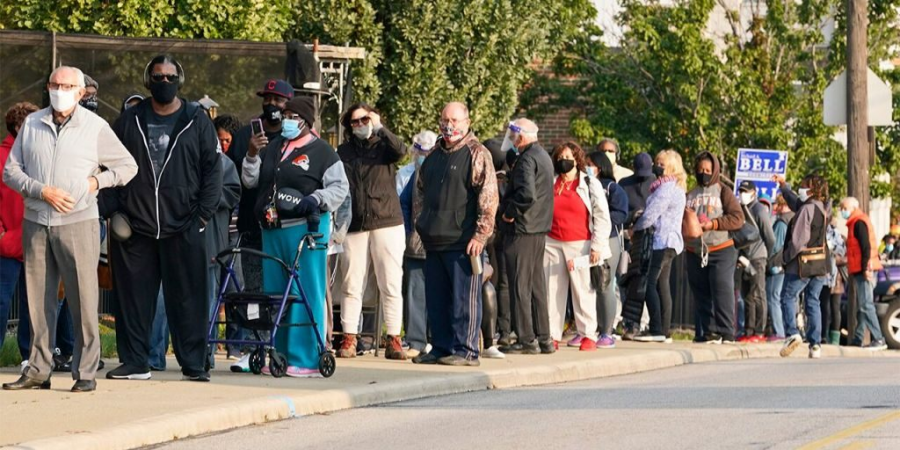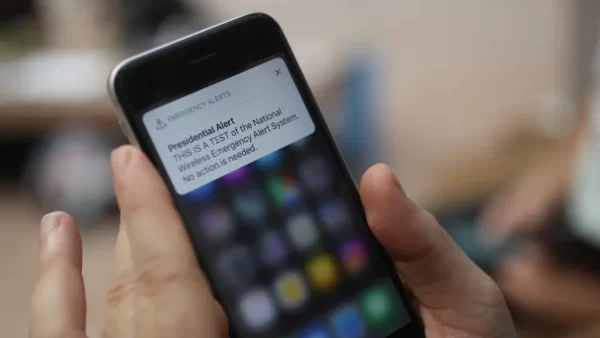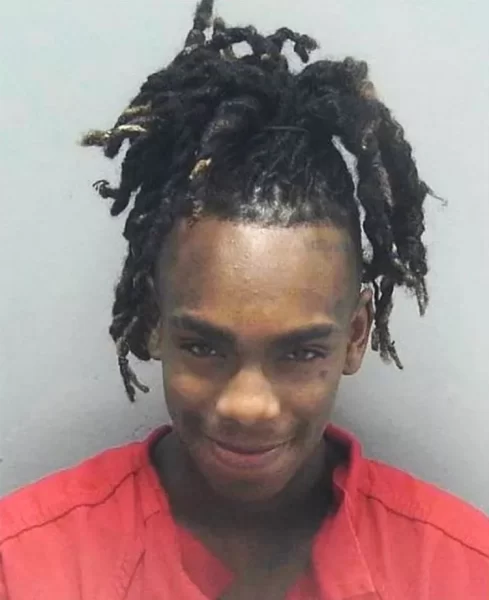Americans face difficulties in voting process
In Cleveland, Ohio, quarter-mile long lines form for early voting.
Voters across the country are struggling to cast their ballots as they face polling station closures and other obstacles.
Recently, Texas governor Greg Abbott came under fire for his decision to limit the number of drop boxes for mail-in ballots to just one per county. Two separate civil rights groups filed lawsuits against him, arguing that this decision disproportionately affects voters with disabilities who may be forced to travel more than 100 miles to drop their ballots off. A federal appeals court judge sided with Abbott on October 13, allowing the closures to continue.
The decision was criticized by the Texas League of Latin American Voters, who argued that the governor is creating confusion around how to vote just one month before the election. David Litt, a political speechwriter and author, pointed out that Abbott’s decision leaves Harris County, with a population of 4.7 million, with the same amount of drop boxes as Loving County, with a population of 169.
“[Texas’] most populous county has – and this is not a typo – 2,780,000% more residents than the least populous,” he wrote in an article for the Guardian.
Texas isn’t the only state where voters face challenges. Close to 100,000 residents of New York City were sent absentee ballots with the wrong name or address on them, making them invalid. The New York City Board of Elections instructed voters to call a hotline to request a new ballot, but callers found that the lines were extremely busy. One person reported being “80-something” in line when they called.
NYC Mayor Bill de Blasio criticized the Board of Elections, saying that the screw up was “appalling.”
The California Republican Party is also facing criticism. On October 12, the party admitted to placing more than 50 misleading ballot boxes in Ventura, Fresno, Orange, and Los Angeles counties. The unofficial drop boxes were set up near gun shops, churches, and Republican party offices and labeled as “Official Ballot Drop off Box” or “Ballot Drop Box.”
California Secretary of State Alex Padilla and Attorney General Xavier Becerra sent a cease-and-desist letter to the statewide Republican party on October 12, saying the drop off boxes “are not permitted by state law.” Becerra added that anyone participating in the placement of the ballot boxes could face criminal prosecution.
Hector Barajas, a spokesman for the California Republican party, argued that the party’s actions were legal and stated that the party would not comply with the cease and desist order.
“Ballot harvesting program will continue,” Barajas said in a statement to CNN.
The confusion surrounding this election continues across the nation. In Michigan, thousands of residents were warned by robocalls that mail-in voting would make them vulnerable to identity theft. In Ohio, Georgia, and other states, polling station closures forced voters to wait in line for upwards of 10 hours.
Trends like these have caused alarm for many voting rights activists, who argue that these instances are part of a larger issue of voter suppression.
“Voter suppression is most certainly alive and well,” commented Kristen Clarke, an attorney and the president of the Lawyers’ Committee for Civil Rights Under Law. “
“Today, we see suppression efforts in the form of purging of the rolls, moving polling sites to hostile locations, shutting down polling sites, making it harder for people to register to vote by imposing new 11th-hour requirements,” Clarke continued.
State- and nationwide Republican parties, who are largely responsible for the polling station closures, have denied any wrongdoing. Mandi Merritt, a spokeswoman for the Republican National Committee, argued that the measures are “designed to ensure that no legally eligible voters are disenfranchised… it’s about getting more people to vote, not less.”





